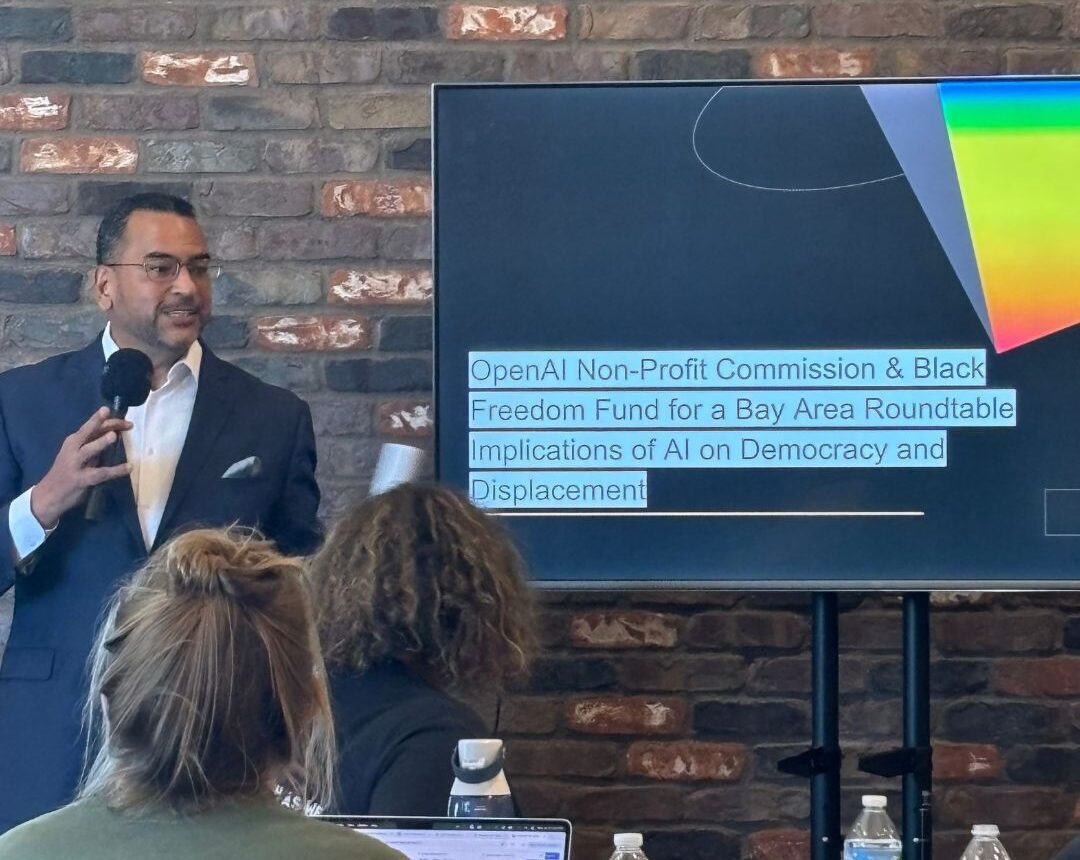Published on July 29, 2025

Let me tell you, it was truly powerful to have a seat at that table, contributing to a conversation that is shaping the very fabric of our future. The energy in the room was magnetic as we discussed the critical implications of AI on our society and shared solutions and safeguards. A highlight was the design thinking focus group with a Stanford d.school partner. It is always great to connect with fellow innovators and see some familiar faces!
As the Executive Director of Self-eSTEM, and someone deeply immersed in Future of Work strategy and Workforce Development, my journey with AI has been one of continuous evolution. Early in my career, my focus was largely on ensuring our girls and women were equipped with the technical skills to thrive in an increasingly digital economy. I saw AI, and its many branches, primarily as a new set of tools to master, another programming language, another algorithm to understand. The challenge, I believed, was simply, access to this knowledge.
However, a pivotal moment came during a strategic design thinking workshop. We were discussing the potential for AI-driven displacement. And not just of jobs, but of voices, opportunities and even democratic processes, if AI’s development and deployment weren’t intentionally equitable. Leaning into the conversation, I shared that merely teaching about AI, or even how to build AI products, wasn’t enough. Our true mandate was to cultivate critical thinkers, ethical innovators, and informed advocates who understood AI’s societal implications and could actively participate in shaping its trajectory. This transformed our approach from just “tech literacy” to “AI readiness for democratic participation and equitable impact.”
Our discussion highlighted the critical importance of “ancestral intelligence” – the deep well of wisdom, resilience, and innovative problem-solving inherent within communities, particularly those who have historically navigated systemic challenges. It’s about recognizing that truly responsible and beneficial AI cannot be built in a vacuum; it must be informed by the diverse experiences, values and insights passed down through generations. This ancestral wisdom offers invaluable context and foresight, ensuring that the solutions we build are truly inclusive and sustainable.
This shift brought several key insights into sharp focus:
My initial struggle was perhaps a common one: focusing too narrowly on the “what” of AI, rather than the “why” and “how” of its societal impact. I grappled with how to convey the profound implications to young minds and their families in a way that truly resonated. The change came when I embraced the idea that our role wasn’t just to prepare them for jobs with AI, but to empower them to shape the future of AI, grounded in both cutting-edge technology and timeless wisdom. This led us to integrate ethical AI discussions, policy implications, and human-centered design principles directly into our curriculum, moving beyond just technical proficiency to holistic empowerment and advocacy.
Huge thanks to Open AI Nonprofit Commission and Marc Philpart, CEO of the Black Freedom Fund for organizing such a vital conversation. And thank you to Commission Lead Bob Ross, Dolores Huerta, Monica Lozano, Daniel Zingale, Commission Team Serna Kirk, Host Organization Street Code, and Speaker James Francis for their invaluable contributions. At Self-eSTEM, we’re looking forward to seeing the impact and report of these discussions!
The future of AI is not predetermined; it is being built by us, right now. Every voice, every perspective, and every ethical consideration matters, deeply rooted in both innovation and the wisdom of those who came before us.
📢 #STEMChat: What role do you believe your organization or community has in shaping an equitable future with AI, drawing from all forms of intelligence? Drop a comment in the chat. #TAPInt
#AIforGood #OpenAI #BlackFreedomFund #SelfeSTEM #BayArea #TechForSocialGood #DemocracyAndAI #FutureOfAI #CommunityEngagement #StanforddSchool